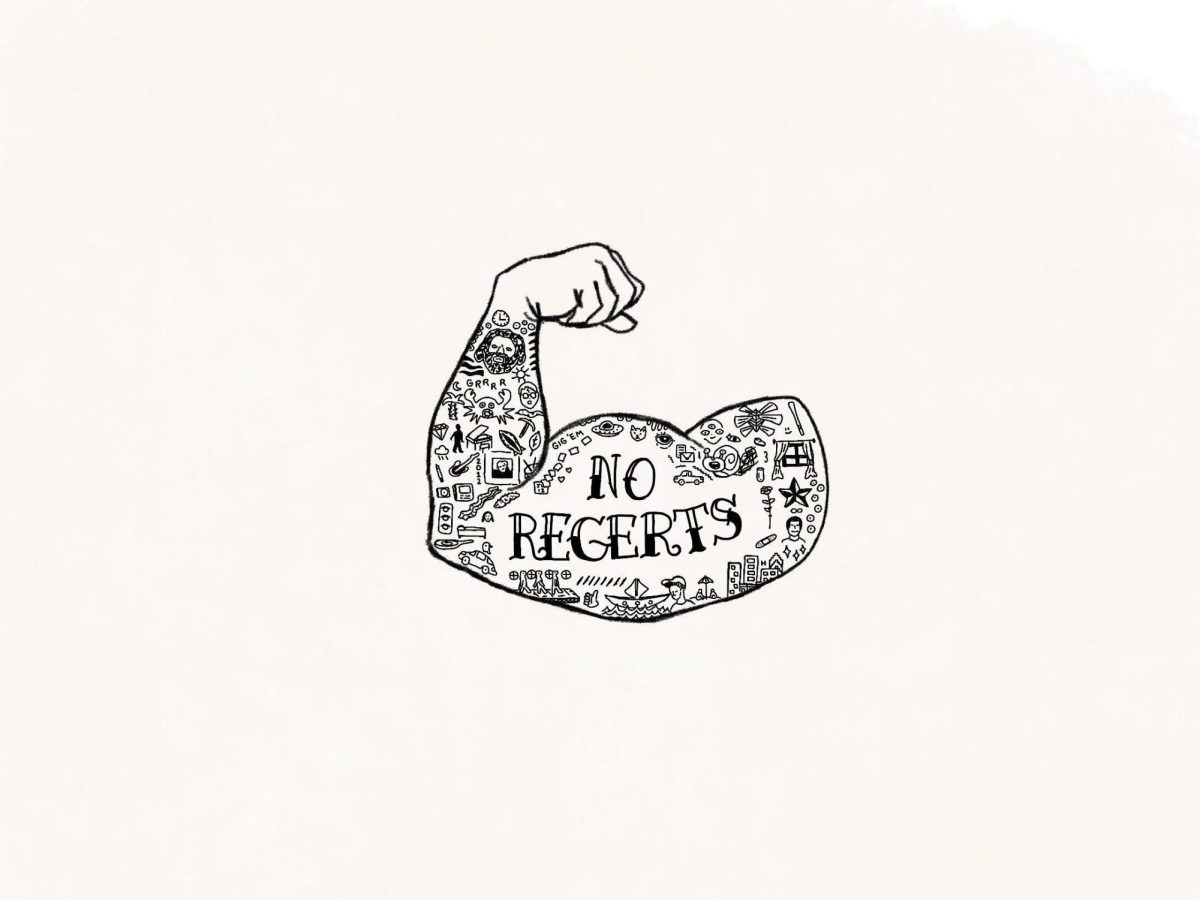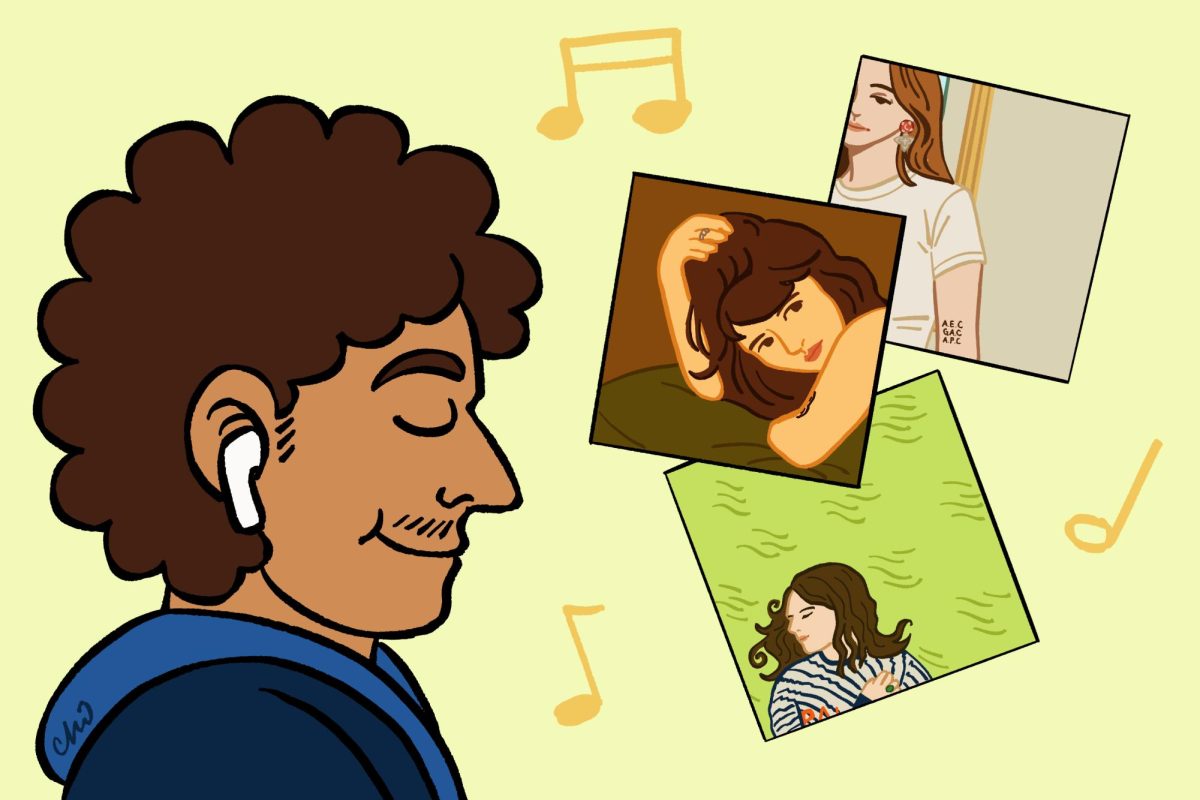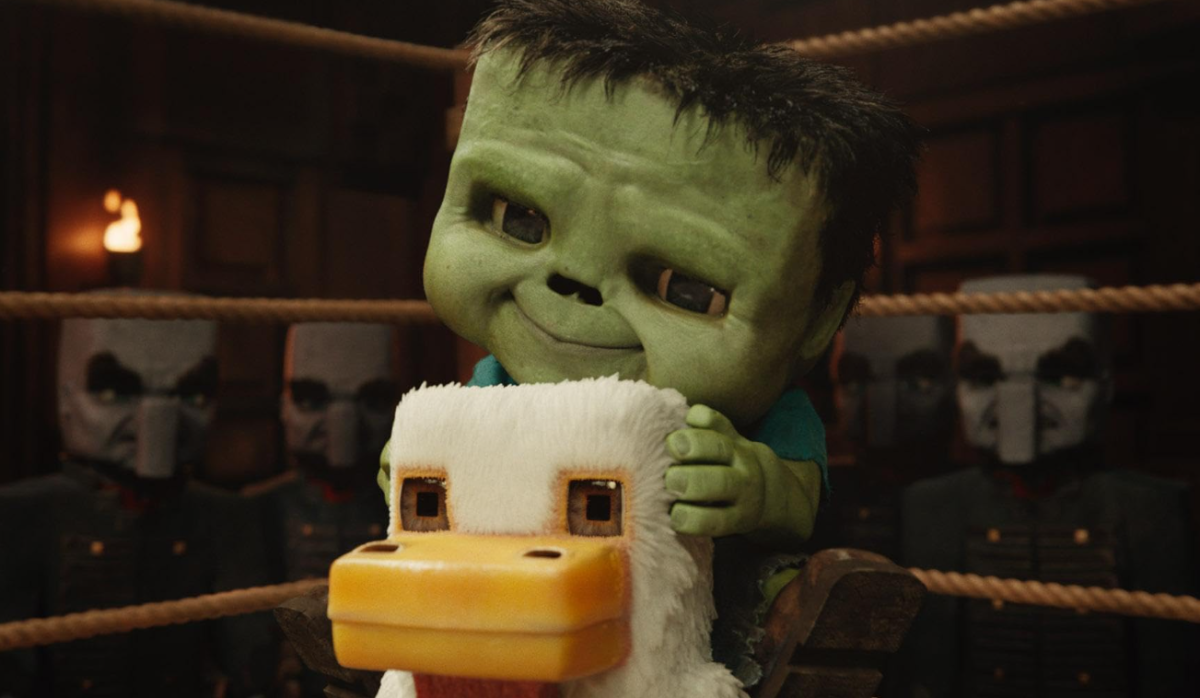Our moms all warned us that we’d regret getting tattoos. That they wouldn’t look so cool when we were old and wrinkly. That we’d never be able to find a job with visible ink.
Sorry, Mom, but that’s just not true anymore.
If anything, tattoos should act as proof you can succeed in a corporate environment. They prove you can sit down and not fidget for the duration of a time-consuming and painful process, which sounds an awful lot like weathering a team meeting at any office job to me.
Tattoos are a form of art. Like piercings and hair dye, they offer a vehicle for self-expression, one more permanent than an earring or T-shirt. They can be chosen for their aesthetic merit and beauty or for their message.
Some of the most popular tattoo designs are flowers, hearts and inspirational or Biblical messages. They can be used as a form of beautification or chosen because they hold a deeper meaning to the person. Choosing a tattoo is a very intimate process, and the kinds of tattoos a person has can say a lot about them, something workplaces have been picking up on in recent years.
A 2018 study found “no empirical evidence of employment, wage or earnings discrimination against people with various types of tattoos.” In fact, people with tattoos were actually more likely to hold a job than those without.
That’s right, folks. The age of tattoos hindering job prospects is over.
This is partially due to the abundance of tattoos in this day and age. In 1999, only 21% of American households reported including a tattooed person. As of 2018, that number is up to 40%. With so many people getting inked, it’s no wonder employers have become more lenient.
Of course, this isn’t to suggest you should go get full sleeves right away. The 2018 study mostly considered blue-collar workers, and while the entire job market is becoming more accepting, you should still be wary of what and where you get tattooed.
In the public eye, some tattoos are considered “trashier” than others. For example, face tattoos are a no-go if you’re aiming for a white-collar job. Vulgar or inappropriate tattoos are also inadvisable. While that topless mermaid bicep tat may look great right now, you might see it in a different light when you’re sitting at the interview table.
You could always cover it up, of course. I have an uncle who’s tatted from the top of his neck to the tips of his toes. He wears pants and a turtleneck to work every day, which may not sound bad until you remember we’re in Texas. Remember last summer when Houston peaked at 108 degrees Fahrenheit? He was stuck sweating in jeans and a turtleneck.
Don’t get me wrong — I love tattoos, and my uncle has some pretty awesome ones. But, if I could go back in time to when he was getting his first sleeve and ask him what he was going to do when he got a job, I can guarantee that he wasn’t planning that far ahead.
Don’t let me scare you away from ink, though. The answer isn’t to not get tattoos. It’s to look ahead.
Think long and hard about what you want, where you want it and how it’s going to look in a decade or two. As a general rule, stay away from celebrities and anything else that can sour on a dime. It would be really awkward to have gotten a tattoo of your favorite NFL running back O.J. Simpson and then … well, you know.
If you have a design you think you like, sit on it for at least six months. If you don’t still like it after half a year, you’ve saved yourself from a lifetime of regret. “No regerts,” am I right fellas? Plus, that will give you time to save up. Ink ain’t cheap.
At the end of the day, tattoos are permanent. No duh, right? But that means you should plan ahead. Even if you’re headed for a lifestyle where offensive tattoos can be embraced, is a vulgar tattoo on your calf really what you want your grandchildren to see when you get older? Do you want that bicep tattoo to be why you can’t wear short sleeves around your future kids?
We’re in a part of our lives where everything feels temporary. Don’t make a mistake you’ll regret for the rest of your life.
Charis Adkins is an English junior and opinion columnist for The Battalion.
















